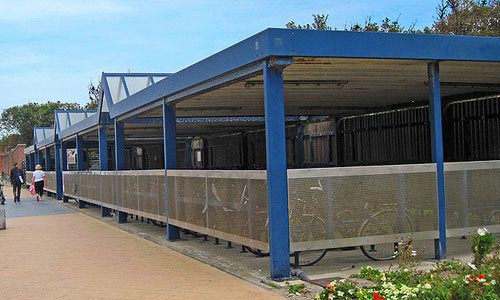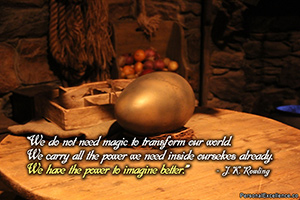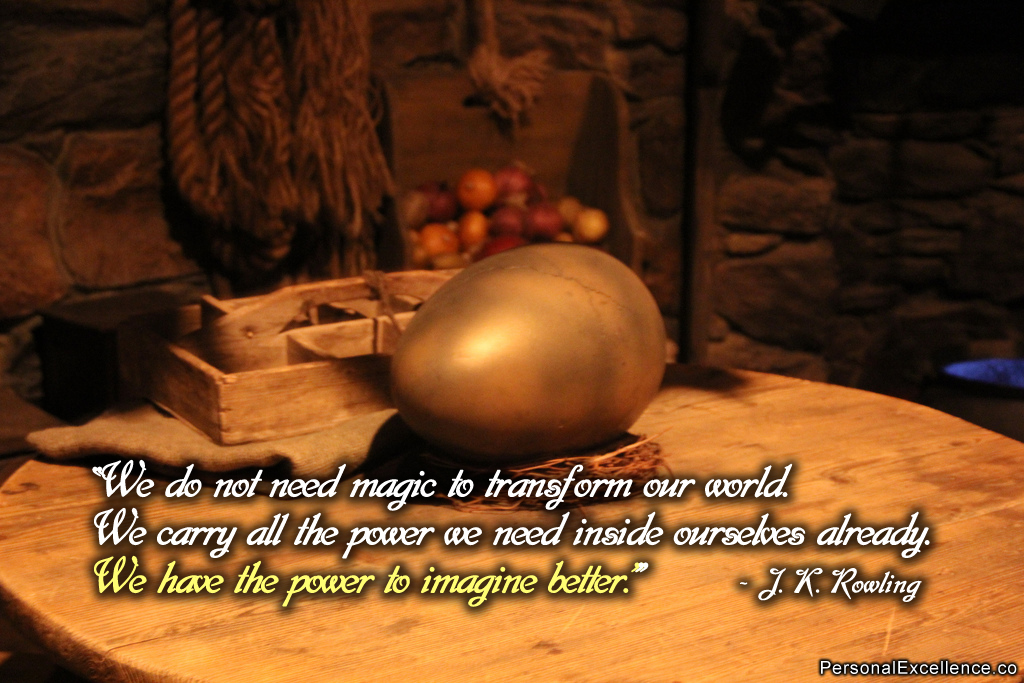
(Image)
Have you heard of the bike shed effect before? Also known as Parkinson’s Law of Triviality, it’s the idea that people spend excessive time on trivial issues, while spending less time on complex, important ones.
Imagine a management committee who are given the plans for a nuclear power plant costing billions of dollars. The topic is complex and outside their expertise, so they approve it with little discussion.
They are then given the plans to build a bike shed. Everyone can visualize a bike shed, so they get into a nitpicking debate about what color to paint it. They end up spending much more time discussing the bike shed, even though the power plant is much more expensive!
In short, people tend to spend more time than needed on trivial issues out of comfort and familiarity, even though they should be completed quickly. The act of lingering and spending excess time on small issues, while neglecting the more difficult and important ones, is called “bikeshedding.”
Examples of Bikeshedding in Our Goals
While the concept of the bike shed effect is used in corporate and business contexts, it applies to personal growth too.
Here are some examples of bikeshedding in our goals:
- Individual: Spends excessive time thinking about whether to buy brown or black pants for work, while neglecting personal health issues
- Employee: Spends hours editing the formatting of a report, instead of improving the report content
- Software developer: Spends an overly long time choosing a perfect shade of blue for a button, rather than fixing a major performance issue
- Blogger: Rewrites their “About” page for the 20th time, instead of working on traffic building strategy after a recent Google update
- Business owner: Spends weeks perfecting logo, slogan, and namecards, and delays working on actual product development
It can also be observed in our relationships, like so:
- A couple spends excessive time discussing what to eat rather than their future goals.
- In a family with aging parents, spending hours talking about mundane topics while ignoring important and difficult topics like long-term care and estate planning.
- A parent spends more time than necessary thinking about what clothes to buy for the child, rather than the child’s mental health and emotional needs at school.
Reflect on your life today and you will easily see the bike shed effect at work.
For example, maybe you worry too much about a simple purchase decision (like choosing colors). You spend a lengthy amount of time along supermarket aisles, pondering whether to buy whole wheat bread or multi-grain bread. You stress out over whether to go to Country A or B for your vacation (or even between choosing Hotel A or B).
All this while, there are bigger and more complex topics in your life being neglected and left by the wayside, such as figuring out your career next steps, improving your health and diet, addressing emotional eating issues, sorting out financial issues, and planning for long-term financial goals. While the topics above (choosing colors, what product variant to buy, etc.) may seem important initially, fast forward a month or year — these discussions lose their significance.
Can you relate to any of these examples?
Why Bikeshedding Happens
So why does this happen? There are a few reasons:
- Comfort. Simple tasks feel comfortable since they are easy to grasp and understand. Complex topics require us to spend a lot of time and mental energy to understand them, and this can be intimidating so we avoid them.
- Lack of expertise. People may feel that the big topics are beyond them and they lack the expertise to tackle the big decisions. So they just stick to the simple, easy topics.
- Risk of failure. There is a risk of failure involved with complex topics, with bigger consequences since they have higher stakes. So we avoid them to prevent failure and mistakes.
- Desire to contribute. When it comes to discussions, people like to feel involved and contribute their opinions. Simple topics let them do so easily as they are easy to understand and relate to.
Bikeshedding: A focus on the wrong things

Bikeshedding: Focusing on trivial things rather than important things (Image)
At its core, bikeshedding is an issue of time wastage and having a wrong focus. Spending too much time on the little things rather than the big, important topics.
Instead of channeling our resources into big-ticket items that will make the biggest difference to our goals and lives, we linger on little tasks for comfort. In turn, critical tasks and decisions get delayed or overlooked.
It’s also an issue of noise. Instead of properly discussing difficult topics with the biggest stakes, such as a nuclear power plant, we spend hours talking about low-stakes topics like what color to paint a bike shed. There is a false sense of productivity — a lot gets discussed, but there is little to no value added.
The answer is to learn to channel our time and energy to the important matters, and to spend the right time on the right things. So instead of spending time excessively on small to-dos, we want to spend time based on the importance and complexity of a topic, like so:

(Image: Personal Excellence)
How To Avoid Bikeshedding and Spend Time on the Right Things
So how can we avoid bikeshedding in our life and focus on the important nuclear power plant decisions in our life? Here are my 8 tips.
- Be clear of the high-impact items in your life. Every day, start off with a list of your high-impact and low-impact tasks. High-impact tasks will make the most change and impact in your life when completed. Low-impact tasks are small, routine items that need to be done.
- Allocate time to the tasks based on importance and complexity. Your high-impact tasks should get the most time and low-impact tasks should get the least time. Don’t fall into the bikeshedding trap, where small items get disproportionate time compared to big items.
- Set time limits for small items (e.g., 5 minutes per item) so that they don’t balloon out of control. Remember that when it comes to the small stuff, the goal is good enough, not perfection. Achieve the key criteria, get it done to a good quality, and move on. Read: How To Overcome Perfectionism (series)
- Pick one and go. If the decision doesn’t matter in the long run, then just pick any option and go. For you to feel conflicted over the choices, that usually means that the choices are likely pretty good and it’s not going to matter much which one you pick. So don’t spend hours debating a small thing endlessly — pick one and make the best out of it. Read: How To Stop Analysis Paralysis
- Redirect focus to the important. Be aware when you are bikeshedding and redirect focus back to the important. Ask yourself: “Is this important? Will this affect me 1, 3, or 5 years from now? What’s at stake here? Are there more important things on the agenda to work on?” If there is nothing major at stake and it’s not going to affect you in the long-term, then it’s not all that significant and you shouldn’t be spending so much time on it in the first place. Take a quick break to reset focus if needed.
- Engage the right people for your goals. The best way to avoid noise is to speak to the right people regarding your goals and tasks. Only involve people with a stake in the matter, who have expertise in the subject-matter, and/or who often shares helpful advice. Don’t share your goals with people who tend to be critical and offer pessimistic views.
- Defer things for follow-up later. If a low-impact topic keeps dragging on and on, then defer it for follow up later. Take it offline or discuss it at a different time. You may see it with a fresh mind and make a faster decision then.
- Seek expert opinion. We avoid the difficult topics because they are too intimidating, but remember that you don’t have to do this alone. Get help from people with subject-matter expertise. What kind of help do you need and where can you find these people? Search online, join related communities, ask around, engage professionals. These experts can bring clarity to the topic, reduce time wastage, clarify the options, and help you make a faster decision.
Do you see the bike shed effect in your life? How can you apply the 8 tips above and spend the right time on the right things? Let me know in the comments section. :)
The next time you see yourself fussing over a small task, ask yourself, “Am I building a bike shed or power plant?” Redirect your focus to the power plants in your life, and let go of the fixation on bike sheds. 🚲






![The Emotional Journey of Creating Anything Great [Infographic]](https://personalexcellence.co/files/infographic-emotional-journey-of-creating-anything-great-400x220.png)
 I hope you find my content helpful. Join my community of 65,000 readers and get my latest articles delivered to your inbox. Your email is safe and I never send spam.
I hope you find my content helpful. Join my community of 65,000 readers and get my latest articles delivered to your inbox. Your email is safe and I never send spam.
Excellent article. Very useful. Thanks Celes!
I believe many of our decisions taking are helped by our being constrained and urged. We need to feel some urgency. Balanced, educated sense of urgency, I mean. There is also a law wich states that: “Humans tend to fill with trivial micro / side occupations the whole amount of time they decide to dedicate to a specific task, and by doing so, tend to lose focus.” (Parkinson law).
I really like article. It is very important to follow 20/80 rules and avoid winning trivial things just for sake of winning. This really promote clarity and critical thinking.
just a suggestion but why dont you write a artical on becoming more professional or improving your business skills or taking it to the next level or even a millionaire wealth accumulation guide. only just a few suggestions ;)
by the way let me let you know i love this site :bow: and i have recommended it to at least half a dozen people :dance: keep up the good work i want to own my own business someday and i’ll have you guys to thank as my inspiration and motivation. thank you writers of personal excellence :hug:
Thank you Curtis! I have covered such topics before, here are the links in case you haven’t seen them:
1) Business Interview Series: https://personalexcellence.co/blog/businesses-interview-series/
2) Million Dollar Series: https://personalexcellence.co/blog/million-dollar-tip-series/
Wealth accumulation really isn’t the focus of this site (personal development is), which is why I haven’t written many articles on the topic.
Thanks so much for sharing the site with others, I really appreciate it! (PS: There is only one writer here and it’s me!)
I really missed the articles on PE! :D Glad you’ve finished the other projects and you’re now writing again. :)
Like Susan, I haven’t heard either of the bike shed effect before. It’s interesting and totally true. However, I find the sixth step to be easier in theory than in practice because we’re human, we all want to share our ideas/plans/etc. to receive some sort of feedback or advice. Blame it on our social behavior, lol.
Really interesting article, Celes :)
Thanks Lina! Regarding the sixth step, I’d say it’s not necessarily about not sharing *at all*, but learning to be choiceful about who you share it with. It’s in line with Tip #1 of the naysayers guide. I realize that some people tend to only have negative opinions to contribute, whereas some people tend to be more supportive and constructive. I have learned to share my plans with the latter group and stick to trivial topics with the former group.
“Regarding the sixth step, I’d say it’s not necessarily about not sharing *at all*, but learning to be choiceful about who you share it with. It’s in line with Tip #1 of the naysayers guide. I realize that some people tend to only have negative opinions to contribute, whereas some people tend to be more supportive and constructive. I have learned to share my plans with the latter group and stick to trivial topics with the former group.”
I see. I agree with you that more often you’ll hear negative opinions rather than constructive/positive ones so choosing those with whom to share your thoughts is indeed important.
It is so easy to fall into this trap of tinkering with the trivial and missing out on the other things that have major impact. I sometimes fall into this trap of tinkering with too much trivial matters (think ebook cover design) and I forgot about the big picture (the content of the book is what that counts).
This is a great reminder and I believe our personal growth can be accelerated by simply taking note about not tinkering with the trivial and taking the big wins instead.
Vincent
I had not heard of the bikeshed story before. Thanks for sharing this interesting concept. My favorite part of your article is “Pick one and go”. I have been saying that for years, when my kids get hung up on choosing among insignificant alternatives of color or options on a toy, or when my spouse tries to nit-pick a hotel selection or eating place while on travel. It really helps to keep moving things along.
Hey Susan! Thanks for your kind words. The bike shed effect originated from the business world and is well-known in business contexts. I thought it is interesting to see parallels between the bike shed story and real life even though it started off as a corporate case study.
Totally love this post. We obsess about the stuff that feels the most real and tangible in the moment. In reality, the big ticket stuff affects us far more, but the fact that it’s more systemic, less tangible, and/or more spread out over time somehow makes it “invisible” to a crude part of our brains. I don’t have the secret to growing our awareness here, aside from just developing the habit of recognizing when you’re getting sucked in, but my favorite among your tips are Nos. 1, 2, and 4, Celes.
If I find myself closely debating some small decision — which I do painfully often — it generally means that either option will work comparably well (No. 4), but better still is keeping a big perspective in the first place (No. 1), in my humble view.
This is a bigger-than-it-seems problem, at least with me (though I’d guess for a few others too :)), so I’m glad to see this post. :)
Commenting for this post is closed.